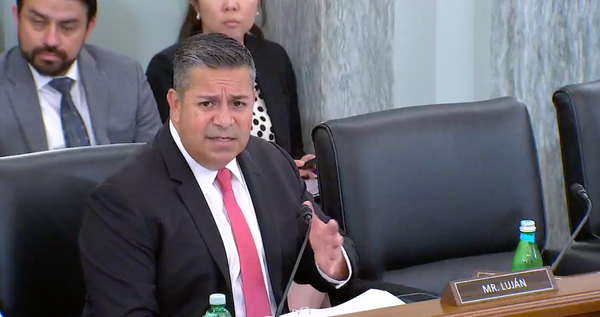TikTok Under Threat of U.S. Ban Following Biden's Bill Signing
The new law specifically prohibits U.S. entities from maintaining a website or application operated by TikTok's owner ByteDance.

WASHINGTON, April 24, 2024 – President Joe Biden signed a significant national defense package Wednesday that includes a provision forcing the divestiture of TikTok from its Chinese owner or risking a nationwide ban of the app altogether.
In addition to providing $95 billion in foreign aid to U.S. allies Ukraine, Israel, and Taiwan, the package includes language empowering the president to ban any social media firm controlled by a foreign adversary that has been deemed to present a significant national security threat.
The legislation specifically targets any application operated by ByteDance, the parent company of TikTok, and gives ByteDance nine months to sell TikTok or face a sweeping ban. Biden did not address the provision affecting TikTok in his remarks following the passage of the national security supplemental.
In a video posted to Twitter, TikTok CEO Shou Zi Chew vowed to challenge the law in the court, saying, “the facts and the Constitution are on our side, and we expect to prevail again.”
TikTok’s head of public policy for the Americas, Michael Beckerman, previously vowed to challenge the legislation in court following the president's signing asserting that the bill infringes on freedom of speech.
In previous U.S. court cases, the first amendment argument has worked in favor of TikTok. In a case last year, a district judge in Montana blocked the state's attempt to ban TikTok, citing a violation of users' free speech rights. The Montana judge found merit in TikTok’s argument that it has several safeguards in place surrounding user data.
Provisions from two House bills aimed at safeguarding U.S. citizen’s sensitive data from foreign bad actors were incorporated into the national security package after passing the House of Representatives on Saturday.
The other provision targets data brokers, forbidding them from selling U.S. residents personally-identifiable information, including social security numbers, genetic information and geolocation data, to nations including North Korea, China, Russia or Iran, along with their affiliated entities.
The legislative package is the fourth component of a broader foreign aid package. It also includes numerous sanctions against Iran and other trade-related national security measures.
The United States initiated proposals to ban TikTok in the summer of 2020 when then-President Donald Trump signed an executive order aimed at banning TikTok unless its ownership was transferred to a U.S.-based company within 45 days due to national security concerns arising from its Chinese ownership.
Following the initial ban proposal, a series of regulatory actions unfolded against TikTok. In September 2020, the U.S. Department of Commerce attempted to ban TikTok and WeChat from U.S. app stores, although these bans were later halted by court injunctions.
By February 2021, the Biden administration paused legal proceedings tied to the TikTok ban to undertake a thorough review of potential security risks linked to Chinese-owned apps; however, the administration initiated a new review of TikTok and other Chinese-owned apps with a focus on data privacy concerns in August 2021.
In the interim, several statewide attempts to ban TikTok have emerged, but none have achieved success in implementation or enforcement.
If the TikTok ban takes effect, it would prohibit the use of the video-sharing app for more than 170 million Americans who use the app for various reasons, including finding community, promoting small businesses and networking.










